+86 13816508465
Pump Introductions
Apr. 21, 2025
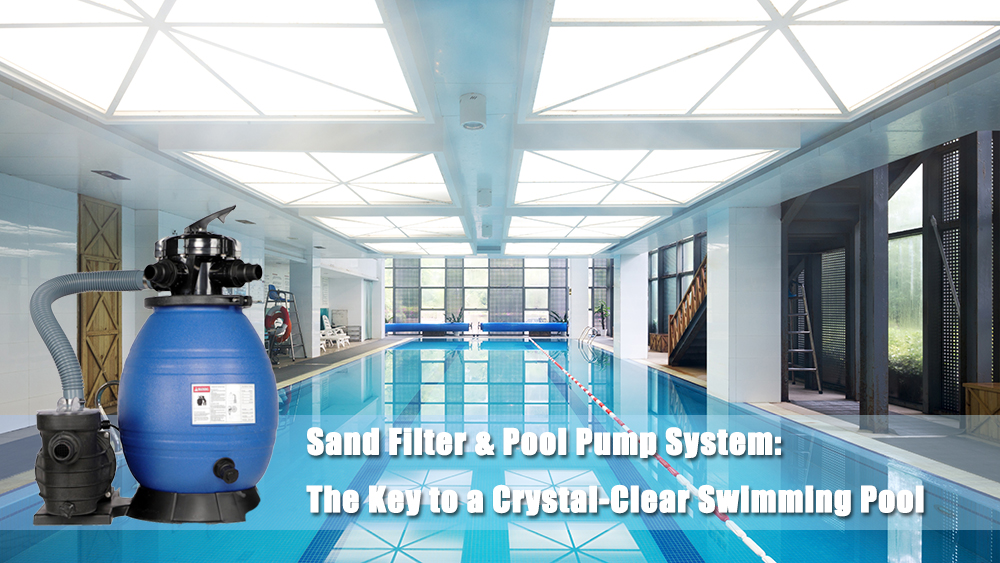
Maintaining clean, healthy, and inviting pool water is essential for both the comfort of swimmers and the long-term protection of your pool system. Among the many tools available for pool maintenance, sand filters, when combined with a well-matched pool pump, offer one of the most reliable and cost-effective filtration solutions.
In this article, we will explore not only the benefits of sand filters but also dive into the importance of selecting the right pool pump to ensure your system runs smoothly and efficiently.
What is a Sand Filter?
A sand filter is a popular type of pool filtration system that uses fine, specially graded silica sand as the filtering medium. Pool water is drawn into the system by a pump and pushed through the sand, which traps dirt, debris, oils, and even some bacteria. The clean, filtered water is then returned to the pool.
Sand filters are widely used in both residential and commercial pools due to their simplicity, effectiveness, and durability.
What Role Does the Pool Pump Play?
While the sand filter is responsible for cleaning the water, it is the pool pump that powers the entire system. The pump draws water from the pool, pushes it through the sand filter, and circulates the filtered water back. Without a properly functioning pump, even the best sand filter cannot do its job.
Types of Pool Pumps Used with Sand Filters:
1. Single-Speed Pumps: These pumps operate at a constant speed. They are budget-friendly but less energy-efficient.
2. Dual-Speed Pumps:Offer two speeds (low and high) for better energy savings during low-demand periods.
3. Variable-Speed Pumps (Inverter Pumps): Highly efficient, quiet, and programmable, making them ideal for pool owners looking to reduce energy costs and improve performance.
4. Self-Priming Pumps: Designed for above-ground installations or long piping runs, these pumps automatically remove air and create a vacuum to ensure continuous water flow.
Advantages of Sand Filter Systems
-High Filtration Efficiency
Sand filters can remove particles as small as 20 microns, efficiently trapping suspended debris like dust, insects, algae, and oils.
-Low Maintenance
These filters require very little attention. Routine backwashing (reversing water flow to flush out trapped debris) is usually needed only every 1–3 weeks, depending on pool usage and environment.
-Long Lifespan
With proper maintenance, a quality sand filter can last 8–10 years or more. The sand inside typically needs replacement every 3–5 years.
-Eco-Friendly & Chemical-Free
Since sand filters rely on mechanical filtration, they minimize the need for chemical clarifiers and cleaning agents.
-Cost-Effective
Lower upfront costs and low operational expenses make this system an excellent value for long-term use.
Installation & Operation Tips
-Proper Sizing of Pump and Filter
· Always match the flow rate of the pump to the maximum flow capacity of the filter.
· Oversized pumps can cause excessive pressure, leading to filter damage.
· Undersized pumps may result in insufficient circulation and cloudy water.
-Regular Backwashing
· When the pressure gauge rises 8–10 psi above the baseline, it's time to backwash.
· Avoid over-backwashing, which can waste water and reduce filter efficiency.
-Sand Media Care
· Replace sand every 3–5 years, or sooner if the water remains cloudy despite normal pressure and backwashing.
· Use only high-quality #20 silica sand recommended by the filter manufacturer.
-Winterization
· If you live in a cold climate, drain water from the pump and filter before winter to prevent freezing and damage.
Real-World Tip: How to Match a Pool Pump with a Sand Filter
Pool Size (Liters) | Recommended Flow Rate (m³/h) | Suggested Pump Power | Filter Tank Diameter |
Up to 20,000L | 6–8 m³/h | 0.37–0.5 kW | 400–450 mm |
20,000–40,000L | 8–12 m³/h | 0.75 kW | 500–600 mm |
40,000–60,000L | 12–15 m³/h | 1.1 kW | 650–700 mm |
60,000+ L | 15 m³/h and above | 1.5 kW or more | 750 mm and above |
Make sure the pump head (H.max) and suction lift are also appropriate for your piping system and installation layout.
Of course, we also have combined solutions for sale:
https://www.streampumps.com/pool-pump/sand-filter-pumps.html
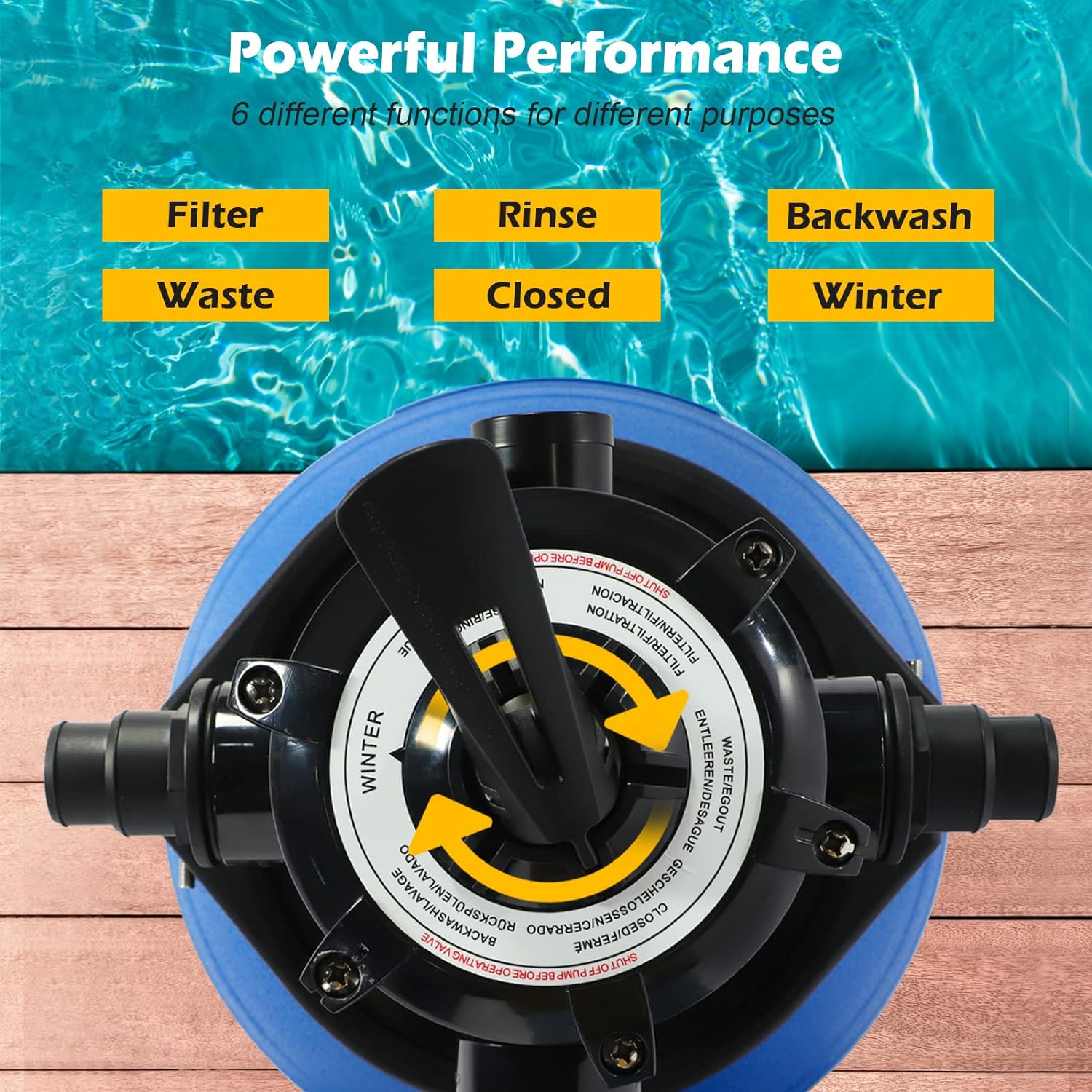
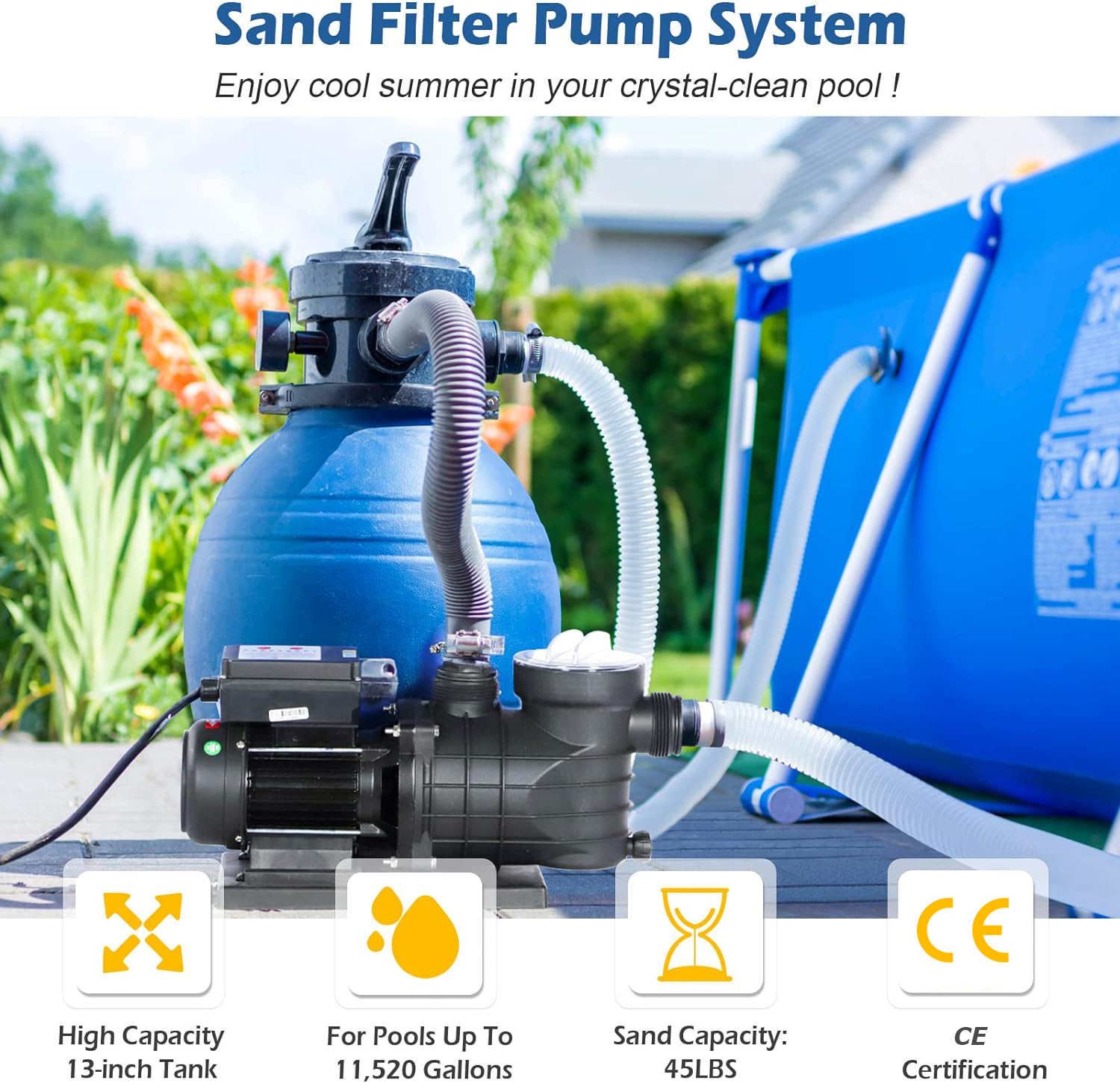
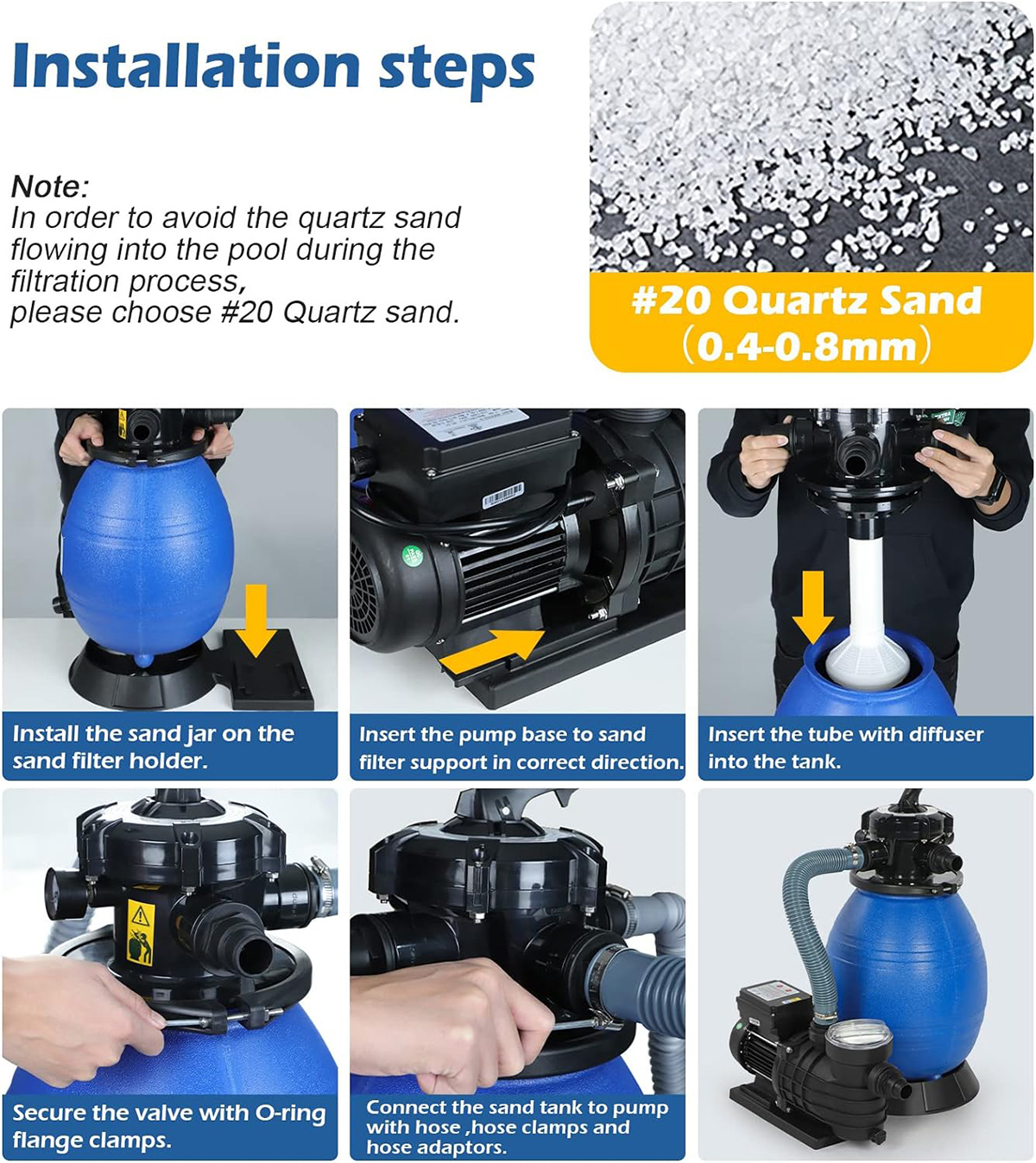
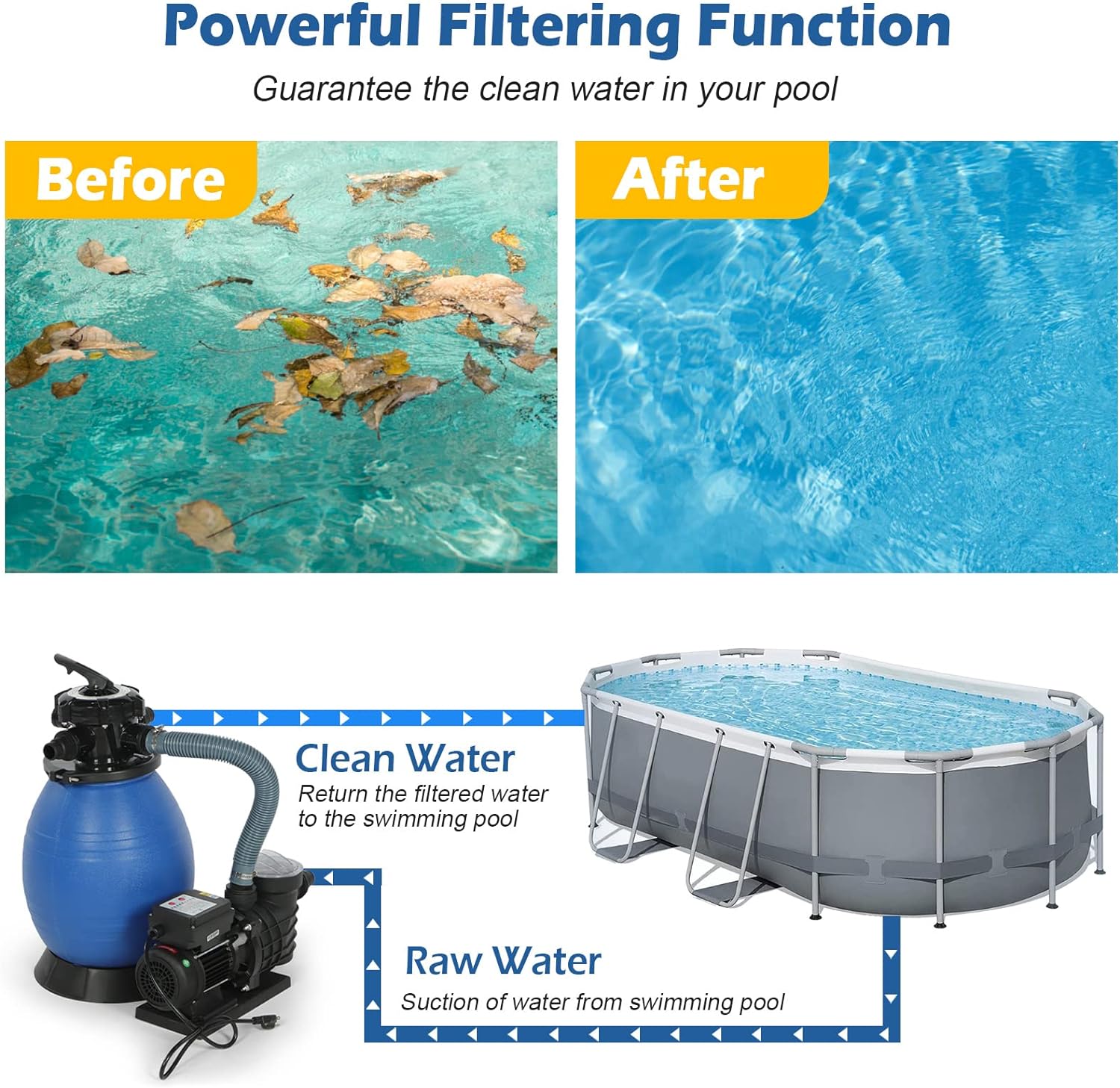
Conclusion
A sand filter paired with the right pool pump creates an efficient, easy-to-maintain system that keeps your pool water sparkling and safe. Whether you're installing a new pool or upgrading an old filtration system, investing in a matched pump and sand filter is crucial for long-term success.
Previous: None
Next: Submersible Sewage Pumps: The Ideal Solution for Koi Farms in Malaysia
Address
No.17 XeDa Jimei Ind. Park, Xiqing Economic Development Area, Tianjin, China
Telephone
+86 13816508465
QUICK LINKS